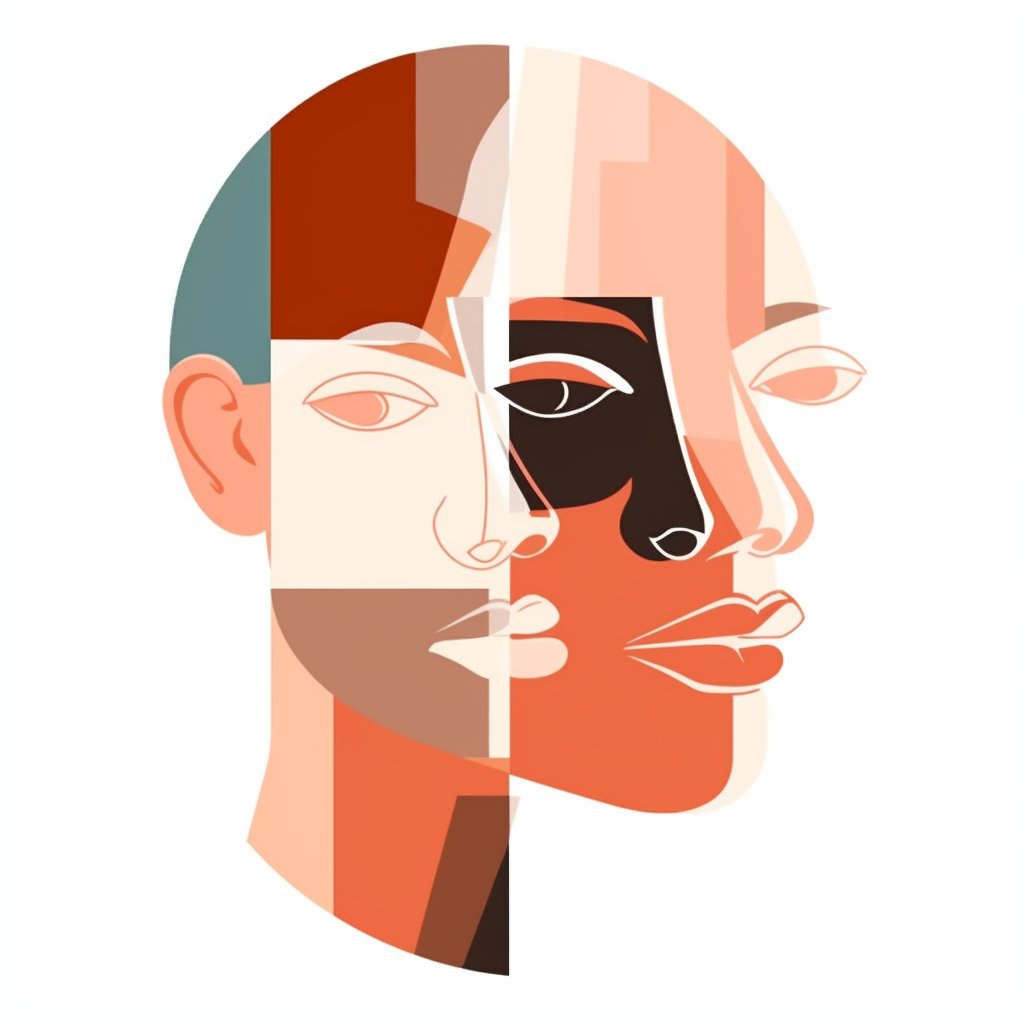ADHD vs. BPD: What is the Difference Between ADHD and BPD?

Distinguishing between ADHD and BPD is essential because the treatment approaches for these conditions differ significantly. While medication and behavioral therapy are effective treatments for ADHD, psychotherapy is the primary treatment for BPD. Misdiagnosis or delayed diagnosis can lead to ineffective treatments, negatively impacting a person’s quality of life (National Institute of Mental Health, 2017).
In the following sections, we will delve into the symptoms, causes, diagnosis, and treatment approaches for ADHD and BPD. We will also compare and contrast the two conditions, highlighting the differences and similarities. By the end of the article, readers should better understand the key distinctions between ADHD and BPD and be equipped to seek appropriate treatment if needed. If you want to know the difference between ADHD and borderline personality disorder, continue reading.
What is ADHD?
ADHD is a neurodevelopmental disorder that affects both children and adults. It is characterized by inattention, hyperactivity, and impulsivity symptoms that can significantly impact daily functioning. According to the Diagnostic and Statistical Manual of Mental Disorders (DSM-5), the diagnostic criteria for ADHD include a persistent pattern of inattention and/or hyperactivity-impulsivity that interferes with functioning or development.
Symptoms of ADHD
The symptoms of ADHD can vary from person to person but are generally classified into two categories: inattention and hyperactivity-impulsivity. Inattention symptoms include difficulty sustaining attention, making careless mistakes, forgetfulness, and being easily distracted. Hyperactivity-impulsivity symptoms include fidgeting, excessive talking, interrupting others, and difficulty waiting their turn.
| Discover: Echolalia in ADHD | Is Echolalia a Symptom of ADHD?
Causes of ADHD
The causes of ADHD are complex and not fully understood. However, research has shown that genetics and environmental factors play a significant role. Studies have identified several genes associated with ADHD, including genes involved in dopamine regulation. Environmental factors, such as prenatal exposure to tobacco and alcohol, have also been linked to ADHD.
Diagnosis of ADHD

Diagnosing ADHD involves a comprehensive evaluation that includes a medical history, physical examination, and assessments of symptoms. According to the American Psychiatric Association, the diagnosis of ADHD requires that the individual has exhibited symptoms before the age of 12 and that the symptoms have been present for at least six months. The evaluation also involves ruling out other conditions that may present with similar symptoms.
| Read more: ADHD in Children: Effective Managing Strategies + Real-Life Stories
Treatment of ADHD
The treatment of ADHD typically involves a combination of medication and behavioral therapy. Stimulant medications, such as methylphenidate and amphetamines, have been shown to be effective in reducing symptoms of ADHD. Behavioral therapy, such as cognitive-behavioral therapy and parent training, can also help teach individuals with ADHD coping skills and strategies for managing their symptoms (National Institute of Mental Health, 2021).
| Discover: ADHD Parenting Tips | Supporting Children with ADHD
What is BPD?
Borderline personality disorder (BPD) is a mental health disorder characterized by intense and unstable emotions, impulsive behavior, distorted self-image, and difficulty in relationships. According to the DSM-5, BPD is diagnosed when an individual experiences significant impairment in self-functioning and interpersonal functioning, along with five or more of the following symptoms: frantic efforts to avoid real or imagined abandonment, unstable and intense interpersonal relationships, impulsivity in at least two areas, recurrent suicidal behavior or self-mutilation, unstable effect, chronic feelings of emptiness, and dissociative symptoms.
Symptoms of BPD

The symptoms of BPD can be grouped into four categories: emotional dysregulation, impulsive behavior, disturbed relationships, and a negative self-image. Emotional dysregulation can manifest as intense and unstable emotions, including anxiety, anger, and sadness. Impulsive behavior may include reckless driving, substance abuse, and binge eating. Disturbed relationships may involve intense but unstable attachments to others, alternating between idealization and devaluation. A negative self-image can lead to shame, guilt, and self-loathing.
| Suggestion: Having BPD Traits without Having BPD!
Causes of BPD
The causes of BPD are not fully understood, but both genetic and environmental factors may contribute to its development. Research suggests that individuals with a family history of BPD or other mental health disorders may be at higher risk. Childhood trauma, such as physical, sexual, or emotional abuse, has also been associated with the development of BPD.
Diagnosis of BPD
Diagnosing BPD typically involves a comprehensive clinical interview with a mental health professional who can assess the presence of symptoms and their severity. In addition, standardized diagnostic instruments such as the Structured Clinical Interview for DSM-5 Personality Disorders (SCID-5-PD) can aid in diagnosing BPD.
Do you know what is the difference between quiet BPD and BPD?
Read the comprehensive guide below to discover:
Quiet BPD vs. BPD | Symptoms, Diagnosis & Treatment
Treatment of BPD
The treatment of BPD typically involves a combination of medication and psychotherapy. Antidepressant and antipsychotic medications may be prescribed to alleviate symptoms such as depression, anxiety, and impulsivity. Psychotherapy, particularly dialectical behavior therapy (DBT), effectively reduces symptoms of BPD. DBT aims to help individuals develop coping strategies for emotional dysregulation, improve interpersonal relationships, and build a positive self-image.
ADHD vs. BPD: What are the Differences?

You may ask what the difference is between ADHD and BPD; Now you know the definitions, symptoms, causes, and treatment of ADHD and BPD, you can understand the difference between these two disorders. Here we study ADHD vs. BPD from different aspects.
ADHD vs. BPD in Symptoms
Here are some of the key differences between ADHD and BPD in symptoms:
Inattention and Hyperactivity vs. Mood Swings and Unstable Relationships
One of the main differences between ADHD and BPD is the nature of the symptoms. Individuals with ADHD may exhibit symptoms of inattention and hyperactivity, such as difficulty focusing, restlessness, and impulsivity. On the other hand, individuals with BPD may exhibit symptoms of mood swings and unstable relationships, such as intense and unstable emotions, fear of abandonment, and a distorted self-image.
Impulsivity vs. Emotional Dysregulation
While both ADHD and BPD involve impulsive behavior, the nature of impulsivity differs between the two disorders. In ADHD, impulsivity is characterized by acting without thinking, such as blurting out answers or interrupting others. In BPD, impulsivity is more closely related to emotional dysregulation and may involve self-harm, substance abuse, or risky sexual behavior.
| Also might be interesting: Quiet BPD vs. CPTSD
ADHD vs. BPD in Causes
Here are some of the key differences between ADHD and BPD in terms of causes:

Genetic vs. Environmental Factors
While both ADHD and BPD may have a genetic component, the role of environmental factors is more pronounced in BPD. Traumatic experiences such as childhood abuse or neglect have been shown to increase the risk of developing BPD.
Neurotransmitter Imbalances vs. Traumatic Experiences
ADHD has been linked to imbalances in the brain’s dopamine and norepinephrine systems, while BPD has been associated with abnormalities in the serotonin system. Traumatic experiences, particularly in childhood, may play a role in both disorders.
| Suggestion: Intersection of BPD and Anxiety
ADHD vs. BPD Diagnosis and Treatment
Here are some of the key differences between ADHD and BPD in diagnosis and treatment:
ADHD Assessment vs. BPD Assessment
Diagnosing ADHD typically involves an assessment of the presence and severity of symptoms of inattention, hyperactivity, and impulsivity. On the other hand, diagnosing BPD involves assessing symptoms of emotional dysregulation, distorted self-image, and disturbed relationships.
Medication vs. Therapy
While medication, such as stimulants, can be effective in treating ADHD, there is no specific medication for BPD. Instead, psychotherapy, particularly DBT, is the recommended treatment for BPD. DBT focuses on improving emotion regulation, interpersonal effectiveness, and distress tolerance.
Learn more…
HealWiser’s Last Piece of Advice
In summary, ADHD and BPD are distinct psychiatric disorders with different symptoms, causes, and treatment approaches. While ADHD is characterized by inattention, hyperactivity, and impulsivity, BPD is characterized by emotional dysregulation, unstable relationships, and distorted self-image. The causes of these disorders also differ, with ADHD having more of a genetic component and BPD having a stronger association with environmental factors, particularly traumatic experiences. Diagnosis and treatment also vary, with ADHD often treated with medication and BPD treated with psychotherapy, particularly DBT.
Accurate diagnosis and treatment are crucial in effectively managing ADHD and BPD. Misdiagnosis can lead to inappropriate treatment and potentially exacerbate symptoms. It is important for mental health professionals to be well-versed in the diagnostic criteria for these disorders and to conduct a thorough assessment to ensure accurate diagnosis and appropriate treatment.
Sharing your experiences can provide valuable insights and emotional support. So…
…share your story with HealWiser and others in the comments section below this post.
References:
www.borderlinepersonalitydisorder.org






